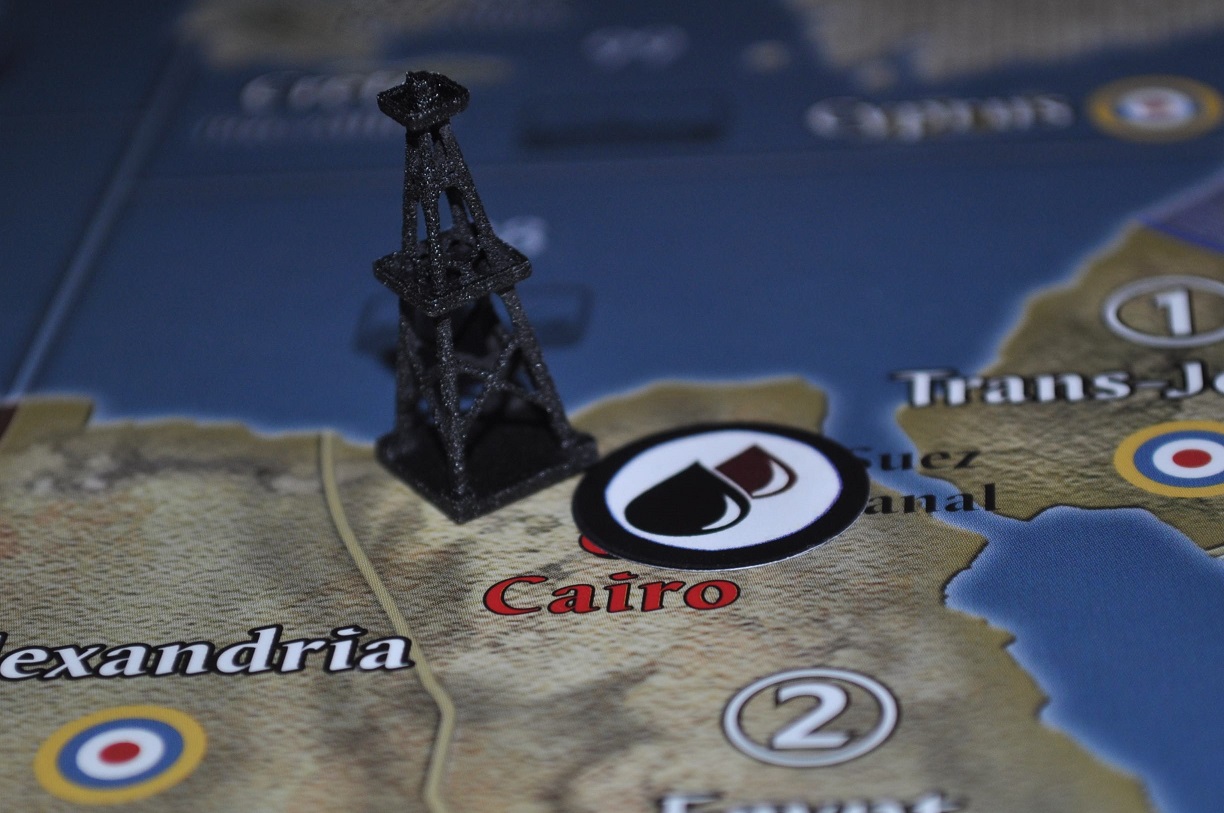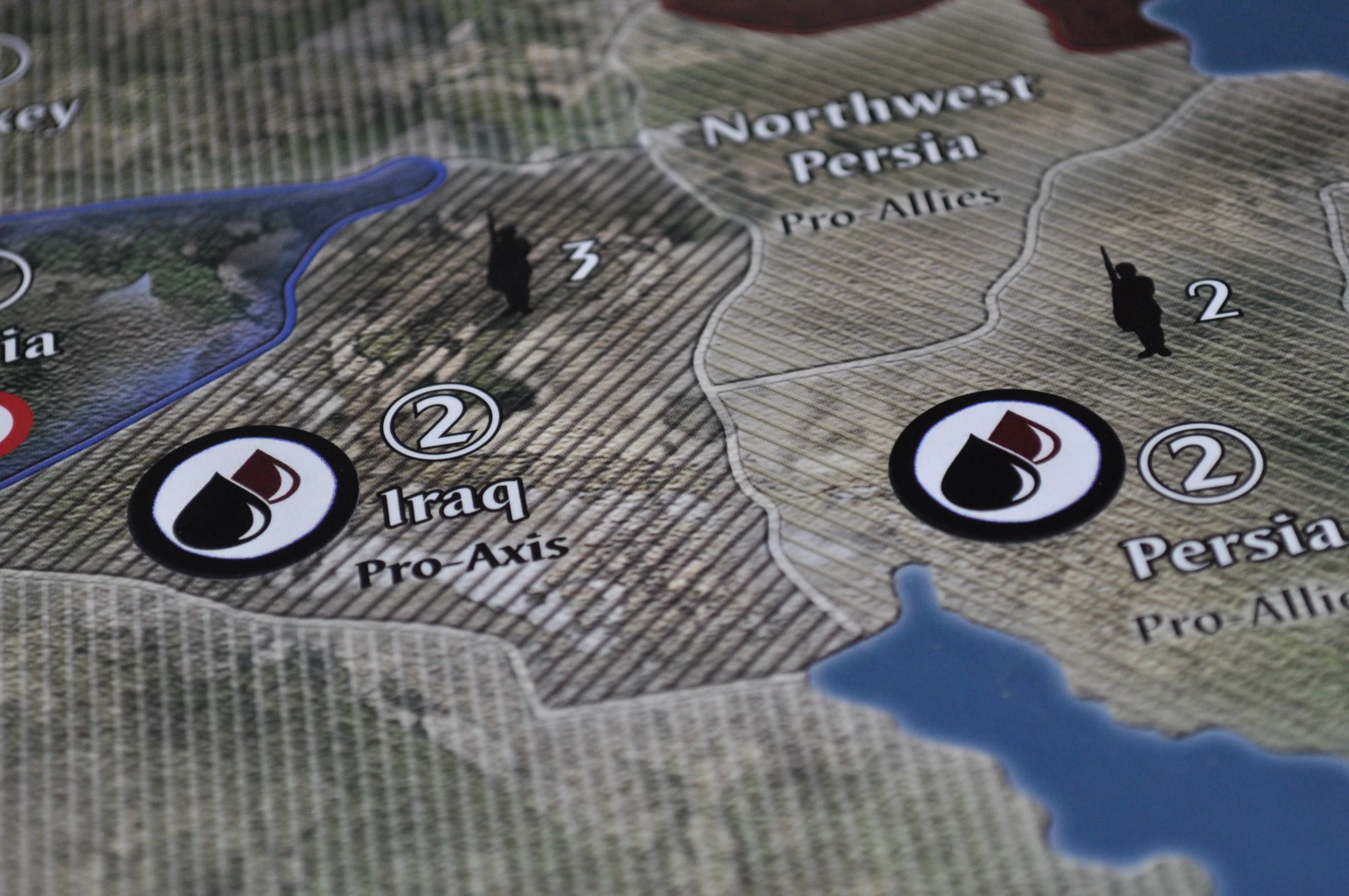@Private:
But a friend (who often plays 1942.2 and 1914 but not Anniversary if he can help it!) dislikes the way they “skew” (in his mind) strategy.
According to Larry’s introduction in the Anniversary rulebook, the “National Objectives & Bonus Income” optional rule was designed to encourage players to play the game in a “more historical” way by rewarding them with extra cash if they achieve certain “stated historical objectives of the real countries involved in the war.” As a history buff, I think that this general concept this is a fine idea…but as a history buff, I do have some reservations about how the concept was translated into actual game rules.
If you look at the NO/BI chart in the rulebook, you’ll note that for each country this information is presented in three parts: a thematic phrase, an explanatory paragraph, and a list of “Gain X IPCs if Y is achieved” objectives. The objectives all involve the same thing: controlling certain blocks of territories and / or sea zones. In other words, they’re all territorial objectives. Players already collect income from controlling territories which have an IPC value, so in effect the NOs are a form of double-dipping: you get hard-wired individual-territory IPCs from the territories you hold, plus conditional collective-territory bonus IPCs if the territories you hold correspond to certain territorial clusters. If these NOs are perceived by players as “skewing strategy”, this seems to suggest three things about these NOs, whose purpose is supposed to be to make the game more historical. First, it could mean that players feel that NOs force them to pursue a strategy which is a less-than-optimal way of winning the game; if that’s the case, then this would indicate that the game’s rules are historically problematic because they give players a better chance of winning if they violate history rather than if they follow it. Second, it could mean that game’s basic rules are all right in terms of winning conditions, but that the NOs themselves need to be improved. Third, it could mean that the basic rules and the NOs are both all right, but that some players perceive this as scripting and have a personal preference for non-scripted games (which, as a personal preference, is a completely legitimate position to take).
The main reservation I have with the NOs has to do with the way they’re presented in the rulebook. The formulation of the three Axis NOs (Lebensraum, The Greater East Asia Co-Prosperity Sphere, and Mare Nostrum) are fine in my opinion: all three Axis powers definitely had the objective of acquiring new territory (which fits with the territorial-control nature of the rulebook NOs), and this objective is expressed well by those three slogans, which were indeed real ones used by those three powers in WWII.
The three Allies NOs, however, don’t work quite as well. The American one is expressed by the phrase “The Arsenal of Democracy,” which is quite genuine (it was coined by Roosevelt) but which has nothing to do with the notion of terriorial control; as the explanatory paragraph in the rulebook itself indicates, the concept was actually economic (more specifically industrial) and political in nature.
The British one is expressed by the phrase “The British Empire,” which by itself is rather bland and isn’t actually a thematic slogan at all. The explanatory paragraph says, “At the time the war broke out, the United Kingdom had stretched its empire around the world. But the empire was stretched thin and was trying to retain its control on its old centers of power.” That description is fair enough, and it does tie fairly satisfactorily with the notion of terriorial control. My guess is that “The British Empire” is meant to be a shorthand version of the much more expressive phrase “The sun never sets on the British Empire,” which I would have much preferred as a NO slogan; my second choice, if a concise phrase was needed, would have been “Rule Britannia” or “Britannia Rules the Waves.”
The Soviet NO is expressed by the phrase “The Great Patriotic War,” which was recycled in 1941 from the Napoleonic Wars and which is indeed what the Russians called their phase of WWII. The problem here is that there’s a mistmatch between the slogan and the descriptive paragraph and the individual NOS. The slogan refers to the 1941-1945 war between Germany and Russia. The descriptive paragraph refers to the USSR’s pre-1941 campaigns to build – by invasion or annexation – a buffer zone between themselves and Germany. The NOs partially reflect and partially don’t reflect what that buffer zone actually consisted of (though this may simply be a function of the Anniversary map, of which I don’t have an image file handy at the moment; in Global 1940, it consists of Vyborg, the Baltic States, Eastern Poland and Bessarabia).








